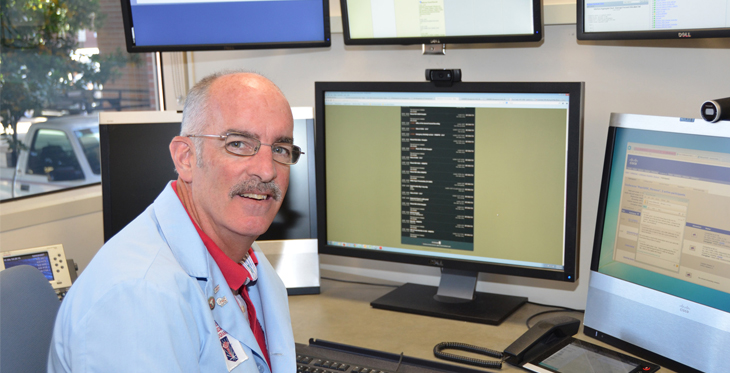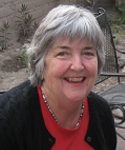When Pete Yonsetto applied for an opening with the Arizona Telemedicine Program, he wasn’t sure it was the right job for him.
But a college professor was adamant. “Apply!” she ordered. So he did. And he got the job.
Today – 14 years later – there is no doubt in Yonsetto’s mind that the job is a perfect fit. Telemedicine is all about connections. And so is he.
“What I need in my life and my work is connecting with people, and being able to offer a service that is helpful to them. That’s the really gratifying piece of this work,” says Yonsetto, video conferencing administrator for the Arizona Telemedicine Program (ATP) network.
His first role with ATP was in teleradiology, then telepsychiatry. Now he connects people and programs throughout the ATP network of 170 sites in 60 communities.
Yonsetto graduated from The University of Arizona in 1987 with a degree in management information systems. But when he was hired for the ATP job, he had no experience in remote networking, or the infrastructure it required.
But he learned. And as he points out, teleradiology was “a big telemedicine hit from the get go.” Other early successes were telepathology and telepsychiatry.
Fourteen years ago, Yonsetto was one of three ATP staffers who were responsible for setting up equipment and communication lines at the UA base and at the rural clinics and hospitals that chose to be part of the ATP network.
One of Yonsetto’s earliest connections was with Lynn Bedoni, telemedicine coordinator for what is now Tuba City Regional Health Care, a hospital and outpatient care system that covers 6,000 square miles on the western side of the Navajo and Hopi reservations.
Yonsetto, who was born in Tucson and has lived most of his life here, was only slightly familiar with Arizona’s Indian reservations when he joined ATP.
“Now I consider Lynn and other Native Americans who I’ve worked with to be very good friends,” Yonsetto says. “I have been able to learn about their culture and lifestyle, and that’s been very enlightening to me. Lynn has shared with me places for hiking, and places where her grandparents have gone. If I ever want a special tour, or to go to a ceremony on the reservation, I would not hesitate to ask. They have given me an open invitation.”
Before he joined ATP, Yonsetto had a lengthy history of working with people in need. His jobs included working with teens and young adults through Pima County’s Job Training Partnership, and working as a manager with the county public fiduciary, serving vulnerable adults who are disconnected from their families, live with serious mental or physical health issues, or both, and are not able to survive on their own.
“It was a great organization doing good things for people,” Yonsetto says. “I knew then I just couldn’t work at a job that wasn’t about making things better for people.”
For the past 14 years Yonsetto also has spent one night a week at Pima Community College, teaching citizenship classes to refugees and immigrants.
“The people are wonderful. Many of them have survived horrible pasts. They’ve never written in any language, not even their own. They have to learn to read and speak a new language, and it’s just so wonderful to see their confidence grow as they learn.”
With telemedicine, Yonsetto says, “I see sort of the same thing. I see a lot of our population as living in hardship, and through our complex technology we can really help people with disabilities and barriers to transportation and education.”
Yonsetto is excited about the future of telemedicine.
“I feel very strongly about home-health care. I see it as our future, especially as our population ages, I think our technology will be vital. I think one day seeing your doctor is going to be as easy as flipping on your TV and turning to a certain channel. I would love to be a part of that evolution, to be in on all the new things that telemedicine can provide.”

